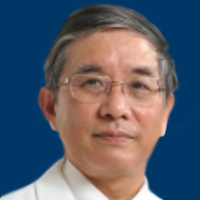Dr. Branagan on the Results of the TOURMALINE-MM3 Trial in Multiple Myeloma
Andrew Branagan, MD, discusses the results of the phase 3 TOURMALINE-MM3 trial in multiple myeloma.
Andrew Branagan, MD, a medical oncologist in the Center for Multiple Myeloma at Mass General Cancer Center in Massachusetts General Hospital, discusses the results of the phase 3 TOURMALINE-MM3 trial in multiple myeloma.
Lenalidomide (Revlimid) maintenance is not sufficient for patients with high-risk cytogenetics or other high-risk features, explains Branagan. However, data from the TOURMALINE-MM3 trial showed that patients with high-risk cytogenetics did just as well on ixazomib (Ninlaro) as standard-risk patients do on lenalidomide. As such, proteasome inhibitors have become the preferred maintenance option for patients with high-risk cytogenetics, says Branagan.
The next step will be to evaluate the combination of ixazomib plus lenalidomide versus lenalidomide alone. Moreover, now that proteasome inhibitors have shown benefit in this setting, researchers could consider evaluating monoclonal antibodies, such as daratumumab (Darzalex) or isatuximab-irfc (Sarclisa).
In the interim, Branagan recommends combining lenalidomide with a proteasome inhibitor for high-risk patients. Most commonly, bortezomib (Velcade) is given every other week. However, if a patient can’t tolerate bortezomib, ixazomib is an appropriate option, concludes Branagan.



